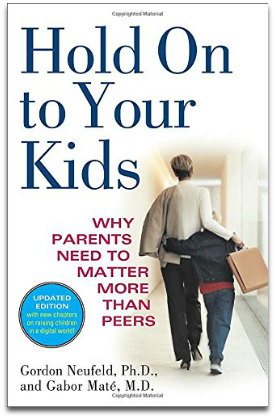Let’s give our kids Roots and Wings.
Below is an excerpt from a wonderful blog by Cally Worden. Cally gives some excellent insight in her article “Roots and Wings: How to Give Your Kids the Best Gift Ever.” She states, “Finding a way to give our kids both roots to keep them grounded and wings to soar, is quite possibly the best gift we parents can ever give”. Below is an excerpt we loved, but we encourage you to read to the whole Article!
Setting Limits – Parents are Like Parachutes
 We have to remember that we are our children’s parachutes – there to let them break the fall and land softly. But in order to help our kids flourish we need also to be willing to allow a little free form skydiving before deploying the chute.
We have to remember that we are our children’s parachutes – there to let them break the fall and land softly. But in order to help our kids flourish we need also to be willing to allow a little free form skydiving before deploying the chute.
The trick is to work out when to pull the cord.
Our kids need room to breathe, to learn for themselves. But too much good stuff can be intoxicating. And we all know where that leads.
In some situations finding the right mix is easy – outdoors we talk about appropriate road safety behaviors. In the home, we ensure our kids learn caution around the hot stove. And so on.
Where it gets tricky is when there is no imminent danger. In these more mundane situations it’s easy to forget how little our kids actually know about life.
They are very adept at learning how to behave in different situations by copying us, but that is no excuse to be passive. There are times when a little more guidance is needed to help them understand the social intricacies of the world.
Take this scenario that unfolded with my little boy in the summer:
We visited a local government office so that I could take care of some household paperwork. My 4-year-old had no concept of this stuffy bureaucratic space as a specific behavioral environment. To him, the offices were just another playground to be explored.
My first parenting fail was to assume he would know instinctively how to behave appropriately.
Naturally, he had no idea. Why would he? He leapt into his skydive with great enthusiasm.
As I shuffled papers and mangled the French language my brain had sufficient capacity only to keep track of my son’s presence. Distracted, I failed to notice him constructing a clever and elaborate game involving a precariously balanced cup of water, and an extendable elastic barrier.
I turned just in time to avert disaster. Or in his eyes … to spoil his fun. Stressed and frustrated I glared at him and muttered barely comprehensible sounds in his general direction.
My second parenting fail was to assume that by hissing ‘Behave!’ in his ear he would somehow magically know what he is supposed to do and transform into ‘Model Child’.
Naturally, this directionless attempt to appeal to his better nature had absolutely zero effect. Zip. He merely nodded seriously and went zooming off in search of something else to do. I had averted one disaster, but knew in an instant that another one would soon start brewing. Sensing the need for swift damage limitation measures I lifted him onto the counter next to me.
My final parenting fail was to assume that watching me do dull adult stuff was an acceptable way of spending time for him.
Naturally, he rewarded my Inadequate-Mom-Moment by seeking my attention. He licked the plastic barrier glass and blew a wet raspberry at the lady behind the desk. Paperwork done, I deployed my parachute woefully late and shuffled red-faced from the building, my giggling boy at my side.
I got the balance wrong this day. I allowed my son to fall too far. He was just being 4, and my pleas for him to ‘Behave’ fell on deaf ears simply because he had no idea what type of behaviour I meant.
I learned that leaving our children free to explore the world is fine in certain environments. But also that I need to modify my own expectations of just what they will learn if I don’t provide any guidance in other environments.
 Gordon Neufeld and Gabor Md Mate provide some excellent wisdom on this is their book Hold On to Your Kids: Why Parents Need to Matter More Than Peers
Gordon Neufeld and Gabor Md Mate provide some excellent wisdom on this is their book Hold On to Your Kids: Why Parents Need to Matter More Than Peers![]() . Their basic idea is that parents need to be the rock that children can depend on. If we provide this security, they will have the strength to find independence when the time is right for them. In short:
. Their basic idea is that parents need to be the rock that children can depend on. If we provide this security, they will have the strength to find independence when the time is right for them. In short:
The only way to become independent is through being dependent.
Independence requires knowledge, and our kids need to know they can depend on us to provide that. Everyday scenarios like the one I experienced with my son offer a wealth of opportunities for show and tell. And, importantly, a safe place under our watchful eyes for them to try out what they’ve learned.
In a carefully timed parachute moment, we simultaneously provide safe limits for our kids, while allowing their confidence to grow. Leave it too late, and they can spin out of control. The best we can do is aim for that perfect glide to ground.
Some days we may even achieve it!
Roots – What You See isn’t All that You Get
Did you know that, given the right soil conditions, a tree can grow roots that are as deep as it is tall?
The point here is that what creates stability – in trees, in kids … in life – is not always the stuff that is visible. We can help our kids grow into physically healthy, strong and fit people by teaching about nutrition, exercise, and caring for your body. And that’s important.
But if the roots of their emotional and spiritual well-being are not also nurtured then they may become weakened, and vulnerable.
We need to take care of the invisible stuff too.
Giving them roots provides the stability and internal resilience they will need to meet life’s challenges with confidence. We need to make sure we nurture their sense of self, the belief they are inherently good, and their knowledge that they can cope with unknown and thrive.
John Bowlby is the father of Attachment Theory. His work suggests that a child who develops a secure attachment with their caregiver early in life will naturally develop into a more secure and confident person. This is broadly true because via secure attachment all children’s basic needs are met, and through this they learn to truly value themselves.
Attachment theory teaches that, as children grow, parents can help their child form secure attachment by explaining things to them, by being present as much as possible, and by continuing to meet basic needs.
On my Admin Quest with my son I didn’t explain the situation to him. I allowed him to flounder. And then got frustrated with him for misbehaving.
Not exactly fair.
With hindsight the simple act of placing myself in his shoes could have averted the stress for us both. A new root for him, and moment of much needed freedom for me to complete my chores.
Of course, even knowing what was expected may not have turned my son into Model Child. But it would have given him a choice within a safe limit. And that promotes strength and self- control. And a chance to test self-dependency.
Roots take time to establish. But each small effort we make to guide our children with loving limits, and a healthy dose of empathy, is like giving them a

